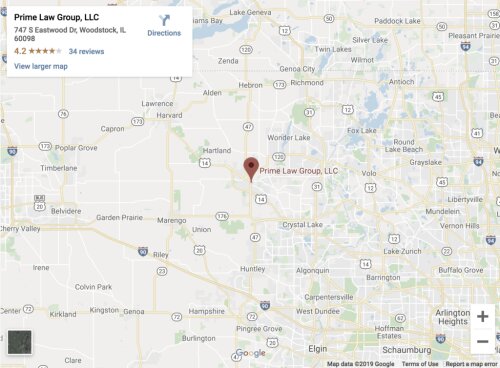Best Real Estate Due Diligence Lawyers in Alabama
Share your needs with us, get contacted by law firms.
Free. Takes 2 min.
Free Guide to Hiring a Real Estate Lawyer
Or refine your search by selecting a city:
List of the best lawyers in Alabama, United States
United States Real Estate Due Diligence Legal Questions answered by Lawyers
Browse our 1 legal question about Real Estate Due Diligence in United States and read the lawyer answers, or ask your own questions for free.
- What is owner of condo units obligation as far as damage to the condo below their unit.
- The unit above my condo is managed by a Property Management company, and it was rented. During the time it was rented, there were water leaks that damaged my ceilings, and the Management Company. refuses to fix the ceiling so that it matches the rest of the ceiling. Even though... Read more →
-
Lawyer answer by Horus Legal Sulotion
Thank you for sharing the details of your situation. Based on the circumstances you described, you may have grounds to escalate the matter legally. You can file a case to request the appointment of a government engineer from Dubai Municipality...
Read full answer
About Real Estate Due Diligence Law in Alabama, United States
Real estate due diligence in Alabama is the comprehensive process of investigating and verifying information about a property before completing a transaction. This phase allows buyers, investors, or involved parties to confirm that the property meets their expectations and complies with local laws and regulations. Due diligence typically involves reviewing title records, evaluating zoning and land use restrictions, inspecting the physical condition of the property, and checking for any outstanding legal issues or liabilities. In Alabama, unique legal requirements and local property customs make professional due diligence particularly important to avoid costly surprises and protect your interests.
Why You May Need a Lawyer
Legal counsel is essential in real estate due diligence for several reasons. Common situations requiring a lawyer include:
- Uncovering title defects or encumbrances, such as outstanding liens or ownership disputes.
- Interpreting restrictive covenants, zoning laws, or easement rights that may affect how the property can be used.
- Assisting with contract review and negotiation to ensure all terms are clearly understood and documented.
- Navigating commercial transactions involving environmental regulations or property use permits.
- Guiding out-of-state buyers unfamiliar with Alabama’s legal landscape and local processes.
- Handling situations involving probate, divorce, or inherited properties with complicated ownership histories.
- Addressing legal risks from unknown tenants, boundary disputes, or unrecorded agreements.
Local Laws Overview
Alabama’s real estate due diligence process is influenced by various state and local laws. Key aspects include:
- Disclosure Requirements: Alabama generally follows a "buyer beware" or "caveat emptor" rule, meaning sellers are not obligated to disclose all defects unless specifically asked or unless a defect is hidden and could not be discovered through ordinary diligence.
- Title Search and Insurance: Verifying ownership and checking for liens or easements is a crucial part of due diligence. Title insurance is strongly recommended to protect against unforeseen claims or data errors.
- Zoning and Land Use: Each city and county in Alabama may have its own zoning ordinances regulating land use, building standards, and allowable property activities. Due diligence should include checks with local zoning offices.
- Property Condition Inspections: Buyers often hire inspectors to evaluate the structure, systems, and environmental conditions of the property. Defects discovered can be grounds to renegotiate or withdraw from the transaction.
- HOA and Condominium Association Rules: Community properties may have additional restrictions, fees, and processes governed by Homeowners’ Associations or similar bodies.
- Environmental Compliance: For certain properties, especially commercial or industrial, environmental site assessments may be required to check for hazardous materials or contamination.
Frequently Asked Questions
What is the standard due diligence period in Alabama real estate transactions?
There is no state-mandated standard period. The due diligence timeline is negotiated in the purchase agreement, but 10 to 30 days is typical.
What if I discover a problem with the title during due diligence?
If a title issue is discovered, the buyer can usually request the seller to resolve it or renegotiate terms. If unresolved, the buyer may have the right to withdraw and get their deposit back, depending on the contract.
Does the seller have to disclose all property defects in Alabama?
Alabama law follows a “caveat emptor” principle in most cases, so sellers do not have to proactively disclose defects unless asked or unless the issue could not be discovered through ordinary inspection.
What types of inspections should be performed during due diligence?
Common inspections include general home/property inspection, termite and pest inspection, structural inspection, roof inspection, and, for commercial/industrial sites, environmental assessments.
Can I back out of a real estate contract during due diligence?
Purchase agreements often have contingencies allowing the buyer to withdraw during the due diligence period if defects or objections arise. The specific right to terminate depends on contract terms.
What role does a real estate lawyer play in due diligence?
A lawyer reviews documents, negotiates contract terms, checks title records, advises on legal restrictions, and ensures compliance with state and local laws throughout the process.
How can I verify if there are unpaid taxes or liens on a property in Alabama?
A title search conducted by an attorney or title company will reveal unpaid property taxes, municipal liens, mortgages, or other encumbrances.
Are there special considerations for buying property in an HOA community?
Yes, due diligence should include review of the HOA's governing documents, fee schedules, rules, regulations, and pending assessments, as these can affect property use and costs.
What if I am buying land for development?
Additional due diligence is required, including verifying zoning, permitted uses, access to utilities, environmental suitability, and any land use restrictions.
Is title insurance required in Alabama?
While not legally required, title insurance is highly recommended to protect buyers and lenders from future claims or defects in the property’s title.
Additional Resources
Those seeking more information about real estate due diligence in Alabama can consult the following resources:
- Alabama State Bar Association - For lawyer referrals and legal education
- Alabama Real Estate Commission - Resources for consumers, licensee lookups, and complaint processes
- County Probate Offices - For title records, deeds, and official land documents
- Local City or County Zoning Departments - To verify land use and building codes
- Professional home inspectors certified in Alabama
- Title companies licensed in Alabama
Next Steps
If you are considering a real estate transaction in Alabama, it is wise to consult with a qualified attorney who has local real estate experience. Your next steps may include:
- Outlining your goals for property purchase or sale
- Gathering all property-related documents and information
- Contacting a real estate lawyer for an initial consultation
- Arranging for professional inspections and a title search
- Reviewing all reports and findings thoroughly before finalizing any agreement
Lawzana helps you find the best lawyers and law firms in Alabama through a curated and pre-screened list of qualified legal professionals. Our platform offers rankings and detailed profiles of attorneys and law firms, allowing you to compare based on practice areas, including Real Estate Due Diligence, experience, and client feedback.
Each profile includes a description of the firm's areas of practice, client reviews, team members and partners, year of establishment, spoken languages, office locations, contact information, social media presence, and any published articles or resources. Most firms on our platform speak English and are experienced in both local and international legal matters.
Get a quote from top-rated law firms in Alabama, United States — quickly, securely, and without unnecessary hassle.
Disclaimer:
The information provided on this page is for general informational purposes only and does not constitute legal advice. While we strive to ensure the accuracy and relevance of the content, legal information may change over time, and interpretations of the law can vary. You should always consult with a qualified legal professional for advice specific to your situation.
We disclaim all liability for actions taken or not taken based on the content of this page. If you believe any information is incorrect or outdated, please contact us, and we will review and update it where appropriate.
Browse real estate due diligence law firms by city in Alabama
Refine your search by selecting a city.














